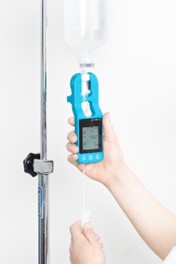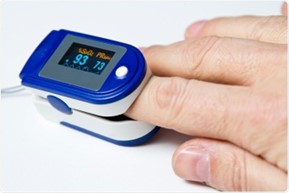A client with renal disease requires IV fluids. It is important for the nurse to:
give the fluids quickly.
monitor the amount of fluid the client is receiving.
if the fluids are too low. increase them to infuse quicker.
check the intravenous rate every two days.
The Correct Answer is B
: A client with renal disease may have impaired kidney function, which can affect fluid balance in the body. Giving fluids too quickly or increasing the infusion rate too quickly can lead to fluid overload,
which can exacerbate the client's condition. It is important for the nurse to monitor the amount of fluid the client is receiving to ensure that the infusion rate is appropriate for the client's condition and to prevent fluid overload. Checking the intravenous rate every two days is not sufficient; the nurse should monitor the rate regularly and adjust it as necessary based on the client's response.

Nursing Test Bank
Naxlex Comprehensive Predictor Exams
Related Questions
Correct Answer is A
Explanation
Pulse oximetry is a non-invasive method of monitoring the oxygen saturation level in the blood. A normal range for oxygen saturation is between 95% and 100%. An oxygen saturation level of 89% indicates hypoxemia, which is a serious condition that can lead to tissue damage, organ failure, and even death if left untreated.
Therefore, the priority nursing action is to perform a respiratory assessment to determine the cause of the hypoxemia. This should include assessing the client's airway patency, breathing patern, lung sounds, and oxygen therapy if the client is already receiving it. The nurse should also observe for any signs of respiratory distress such as cyanosis, accessory muscle use, or difficulty breathing.

While it is important to document hypoxemia and report it to the healthcare provider, the priority at this time is to assess and intervene promptly to prevent further deterioration of the client's condition. Checking the placement of the pulse oximeter may be necessary if the reading is unreliable, but it is not the priority in this scenario.
Correct Answer is D
Explanation

AB+ blood type is known as the universal recipient because individuals with this blood type have both A and B antigens on the surface of their red blood cells, as well as the Rh antigen. This means that they can receive blood from donors of any ABO blood type (A, B, AB, or O) and Rh factor (positive or negative) without experiencing a transfusion reaction.
Therefore, in the case of a patient who will be needing a blood transfusion, if the nurse knows that the patient's blood type is unknown, it is ideal to give them AB+ blood type as it is considered the safest option.
Whether you are a student looking to ace your exams or a practicing nurse seeking to enhance your expertise , our nursing education contents will empower you with the confidence and competence to make a difference in the lives of patients and become a respected leader in the healthcare field.
Visit Naxlex, invest in your future and unlock endless possibilities with our unparalleled nursing education contents today
Report Wrong Answer on the Current Question
Do you disagree with the answer? If yes, what is your expected answer? Explain.
Kindly be descriptive with the issue you are facing.
